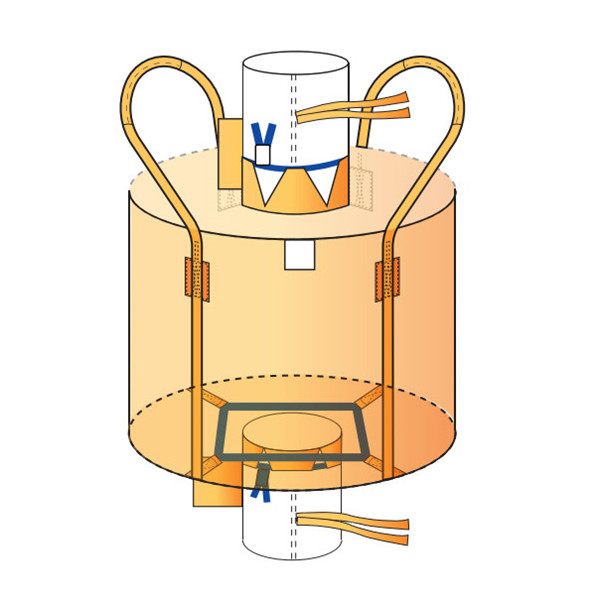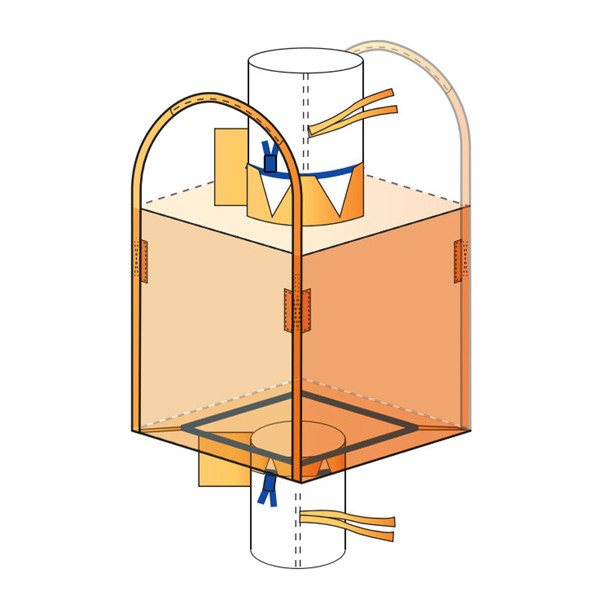Blood Sugar Drops After Eating
Reactive hypoglycemia, also called postprandial hypoglycemia , is when your blood sugar (blood glucose) drops after eating. Sometimes referred to as a "sugar crash," reactive hypoglycemia usually occurs within four hours of eating. Polypropylene Reusable Shopping Bags

Reactive hypoglycemia is one of two types of hypoglycemia unrelated to diabetes. The other is known as fasting hypoglycemia, which happens when you don't eat for a long time. Other medical conditions may also mimic hypoglycemia.
The cause of reactive hypoglycemia is often unknown, although there are a handful of medical conditions associated with it. The treatment is typically focused on normalizing blood glucose levels by consuming a small amount of sugary food or beverage.
This article explains what reactive hypoglycemia is and how it differs from hypoglycemia in people with diabetes. It also outlines the symptoms, causes, and methods of diagnosing and treating this uncommon form of hypoglycemia.
Hypoglycemia is the medical term for low blood sugar, with the prefix hypo- meaning "low" and "glycemia" referring to the presence of glucose in the blood. Glucose is one of the main sources of energy for the body.
Hypoglycemia occurs when blood glucose levels drop below normal. Symptoms of hypoglycemia typically occur when glucose levels drop below 70 milligrams per deciliter of blood (mg/dL).
Hypoglycemia is common in people with diabetes, who may experience a drop in blood sugar due to high insulin doses, among other things. But, hypoglycemia can also affect people who don't have diabetes for entirely different reasons.
Usually happens after eating high-carbohydrate meals
Could indicate pre-diabetes or being at risk for diabetes
May be caused by a history of stomach surgery
Occurs after a long period of time without eating
Could be caused by certain medications, alcohol, or illnesses that cause low glucose
May be caused by low levels of hormones
Reactive hypoglycemia is a type of non-diabetic hypoglycemia.
Reactive hypoglycemia occurs exclusively after eating food. By contrast, hypoglycemia in people with diabetes is often caused by postponing or skipping meals.
Hypoglycemia in people with diabetes can also occur if they take too much insulin or diabetes medications or if they exercise vigorously without adjusting their medications or eating more food.
Reactive hypoglycemia can cause symptoms ranging from mild to severe. It is rarely life-threatening but may be a sign of an underlying medical condition.
Symptoms of this condition vary by how rapidly or severely blood sugar levels drop. As such, what reactive hypoglycemia feels like can differ from person to person and even episode to episode in the same person.
Some symptoms of reactive hypoglycemia include:
If the drop in blood sugar is severe, it can cause profound and even debilitating symptoms. This is particularly true if the person is dehydrated.
Severe symptoms of reactive hypoglycemia include:
Generally speaking, a single episode of reactive hypoglycemia is not a cause for alarm unless the symptoms are severe, such as passing out or experiencing a seizure. Severe symptoms are most likely to occur if a person is dehydrated, which in itself may require treatment.
Recurrent episodes should never be overlooked. While it is possible that dietary habits are contributing to the episodes, the bigger concern is that a recurrent drop in blood sugar may be a sign of an undiagnosed medical condition, such as Addison's disease or pancreatitis.
Reactive hypoglycemia can be diagnosed by measuring the amount of glucose in a person's blood while they are having symptoms. If the blood glucose level is below 70 mg/dL, your healthcare provider may recommend a mixed meal tolerance test (MMTT).
The MMTT is performed by feeding the person a beverage rich in protein, carbohydrates, and fat (such as Ensure or Boost). After drinking the beverage, blood glucose levels are retested every 30 minutes for five hours.
In addition to glucose, the MMTT will monitor insulin levels in the blood. This is a hormone produced by the pancreas that helps regulate blood sugar.
Conditions other than hypoglycemia can have some of the same symptoms, including dizziness, weakness, sweating, and rapid heartbeat.
These include a wide variety of conditions, such as:
To decide if your symptoms are due to hypoglycemia, your healthcare provider will look for signs of the "Whipple Triad."
Without these three indications, your healthcare provider will likely evaluate you for other conditions that have similar symptoms.
Triggers for reactive hypoglycemia can include eating high-carbohydrate meals or snacks. One theory as to why it occurs is that when a person eats carbs with a high glycemic index, the body produces enough insulin to combat hyperglycemia.
However, the body is not prepared for a crash because glucagon, which can counteract the action of insulin, is not adequately produced. Therefore, when blood sugar does go down, the body does not bring up the sugar by gluconeogenesis or glycogenolysis, which are processes that produce blood glucose from stored materials In the body.
There are several other conditions that are known to cause non-diabetic hypoglycemia.
The amount of time an episode of hypoglycemia lasts will depend on how low the glucose level has dropped. If the glucose levels are extremely low and left untreated, fainting and even seizures can occur. If treated with fast-acting carbohydrates, a person may recover within 15 minutes.
An episode of reactive hypoglycemia may correct itself on its own and most of the time, people don't need medical treatment. However, if the symptoms are recurring, they may be the result of an underlying condition that needs treatment.
For an underlying medical condition, the treatment will focus on resolving or managing the condition. This may include the surgical removal of an insulinoma or, in the case of NIPHS, the partial removal of the pancreas itself.
For all other cases, there are two aspects of treatment. The first is knowing how to respond to hypoglycemic episodes. The second is making changes to prevent future episodes.
If you have an episode of reactive hypoglycemia, you can use food to help restore normal blood sugar levels. This is accomplished with the "15-15 Rule," which involves eating 15 grams of fast-acting carbohydrates and checking your blood sugar 15 minutes later to see if the levels have normalized.
Carbohydrates ("carbs") are essentially sugar molecules. Fast-acting carbohydrates are certain types of foods or beverages that can quickly raise the blood sugar level.
If the blood glucose level is still below 70 mg/dL after 15 minutes, you would eat another serving and check again in 15 minutes.
When treating a low, the choice of carbohydrate source is important. Limit high glycemic index (GI) foods that cause blood sugar levels to rise and then fall quickly, such as white bread, white rice, or sweetened yogurt. In addition, foods that contain fats along with carbs (like chips, cookies, or a candy bar) can slow the absorption of glucose and should not be used to treat an emergency low.
Once your symptoms have eased, have a snack if your next meal is more than 1 hour away to prevent your blood sugar from dropping again.
The cause of reactive hypoglycemia in most cases is unknown. Even so, certain dietary and lifestyle changes may reduce the odds of it happening again.
Among the diet recommendations your healthcare provider may give you:
In addition, you should exercise regularly. Physical activity increases the amount of glucose taken up from the blood. This, in turn, helps stabilize insulin levels.
If you're just starting to get active, remember to work your way up to increasing your activity. It's also worth consulting with your healthcare provider before beginning.
Reactive hypoglycemia is a drop in blood glucose (sugar) that occurs after eating. Symptoms usually develop within four hours of consuming food and may include shakiness, dizziness, nausea, rapid heartbeat, and sweating. Severe cases can lead to fainting or seizures.
Reactive hypoglycemia is not related to diabetes, and the cause of most episodes is unknown. The treatment typically involves eating fast-acting carbohydrates that can quickly bring blood sugar levels back to normal.
American Diabetes Association. Hypoglycemia (low blood sugar).
Bansai N, Weinstock RS. Non-diabetic hypoglycemia. In: Endotext [Internet]. South Dartmouth, MA: MDText.com Inc.; 2020.
Altuntas Y. Postprandial reactive hypoglycemia.Sisli Etfal Hospital Type Find.2019;53(3):215–20.doi:10.14744/SEMB.2019.59455
Galati SJ, Rayfield EJ. Approach to the patient with postprandial hypoglycemia. Endocr Pract. 2014 Apr;20(4):331-40. doi:10.4158/EP13132.RA
Stuart K, Field A, Raju J, Ramachandran S. Postprandial reactive hypoglycaemia: Varying presentation patterns on extended glucose tolerance tests and possible therapeutic approaches. Case Rep Med. 2013;2013:273957. doi:10.1155/2013/273957
Martens P, Tits J. Approach to the patient with spontaneous hypoglycemia. Eur J Intern Med. 2014 Jun;25(5):415-21. doi: 10.1016/j.ejim.2014.02.011
Boston Children's Hospital. What is hypoglycemia and low blood sugar?
Salehi M, Vella A, McLaughlin T, Patti ME. Hypoglycemia after gastric bypass surgery: Current concepts and controversies. J Clin Endocrinol Metab. 2018;103(8):2815–2826. doi:10.1210/jc.2018-00528
Harvard Health Publishing. Understanding the stress response.
National Institute of Digestive and Diabetes and Kidney Diseases. Low blood glucose (hypoglycemia).
By Debra Manzella, RN Debra Manzella, MS, RN, is a corporate clinical educator at Catholic Health System in New York with extensive experience in diabetes care.
Thank you, {{form.email}}, for signing up.
There was an error. Please try again.

Firewood Bags Bulk By clicking “Accept All Cookies”, you agree to the storing of cookies on your device to enhance site navigation, analyze site usage, and assist in our marketing efforts.